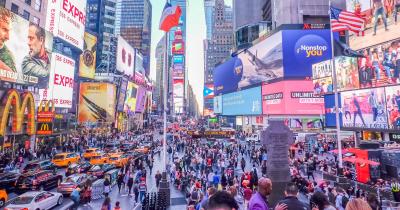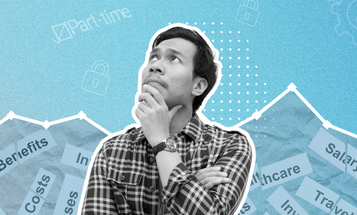
The Biggest Problem With Capitalism That Nobody Talks About
Extreme market forces are corrupting us as individuals – morally and ethically.

Contemporary capitalism is under growing fire, with a rising chorus of critics making four main points: first, that the current incarnation of capitalism produces too much inequality; second, that it is too unstable and prone to crisis; third, that capitalism in its current form is at odds with the planet's ecology; and fourth, that capital has hijacked government, subverting democracy and winning too many special favors.
All true. The problem, though, is that each of these critiques falls flat with some slice of Americans. Polls consistently show that inequality is mainly a concern of Democrats, not Republicans. Ditto for ecological preservation. Concerns about the instability of capitalism and how special interests take over our democracy are less divisive, but ebb and flow depending on events.
That's why we need to build out a fourth line of attack on capitalism, which could possibly be the most powerful of all: That extreme market forces are corrupting us as individuals – morally and ethically.
This is hardly a novel argument. For hundreds of years, the world of commerce and money, along with consumption, has been viewed with uneasiness or downright alarm by any number of moral leaders. The fear has been that greed and materialism, along with a transactional mindset, would push aside other values, like family, faith, community, honesty, frugality, reciprocity, sexual restraint, aesthetic sensibility, and more.
Of course, all these fears have been borne out to some degree – particularly in the U.S. over the past few decades. And while the right likes to blame the rise of today's extreme individualism on the left, the truth is that an ever less regulated capitalism has been by far the strongest shaper of U.S. society – amplifying in often toxic ways the libertarian strain of the American psyche.
Plenty of progressives think and talk about the downsides of greed and materialism, along with the market's ruthless focus on efficiency, but almost always in service of concerns about economic security or ecological well-being. What you don't hear so often are these aspects of capitalism critiqued on the grounds that they make us worse people -- less connected to family and friends, less empathetic and caring, ruder and less patient, more focused on instant gratification, less sexually responsible, more gluttonous, more misogynistic, and so on.
Sure, you hear scattered complaints along all these lines: entertainment and tech companies are "dumbing us down," video games make kids violent, popular culture leads men to objectify women, greed makes people more likely to lie and cheat, corporations undermine family by forcing people to work too much, Big Food addicts us to fat and sugar, Big Pharma tempts us to escape our real personalities, developers structure housing patterns in ways that subvert community, inequality undermines empathy, etc.
But this cacophony of gripes never quite coalesce into a strong moral critique of capitalism.
Meanwhile, though, large majorities of Americans are anxious about the state of the country's values – and have been for decades. Conservatives have largely been monopoly providers in addressing these concerns with an explicit values agenda for shoring up the family, combating crime and social disorder, strengthening faith, re-imposing sexual restraint, and cleaning up popular culture.
So here's a big challenge for progressives: we need to bolster our critique of capitalism, and win over broader support for this critique, by linking a market run amok to America's strong and bipartisan anxiety about the nation's moral health.
I know, I've said this all before in my book The Moral Center. But now that capitalism is coming under more scrutiny, a bigger window may be opening for a robust debate about morality and the market. Let's have it.




